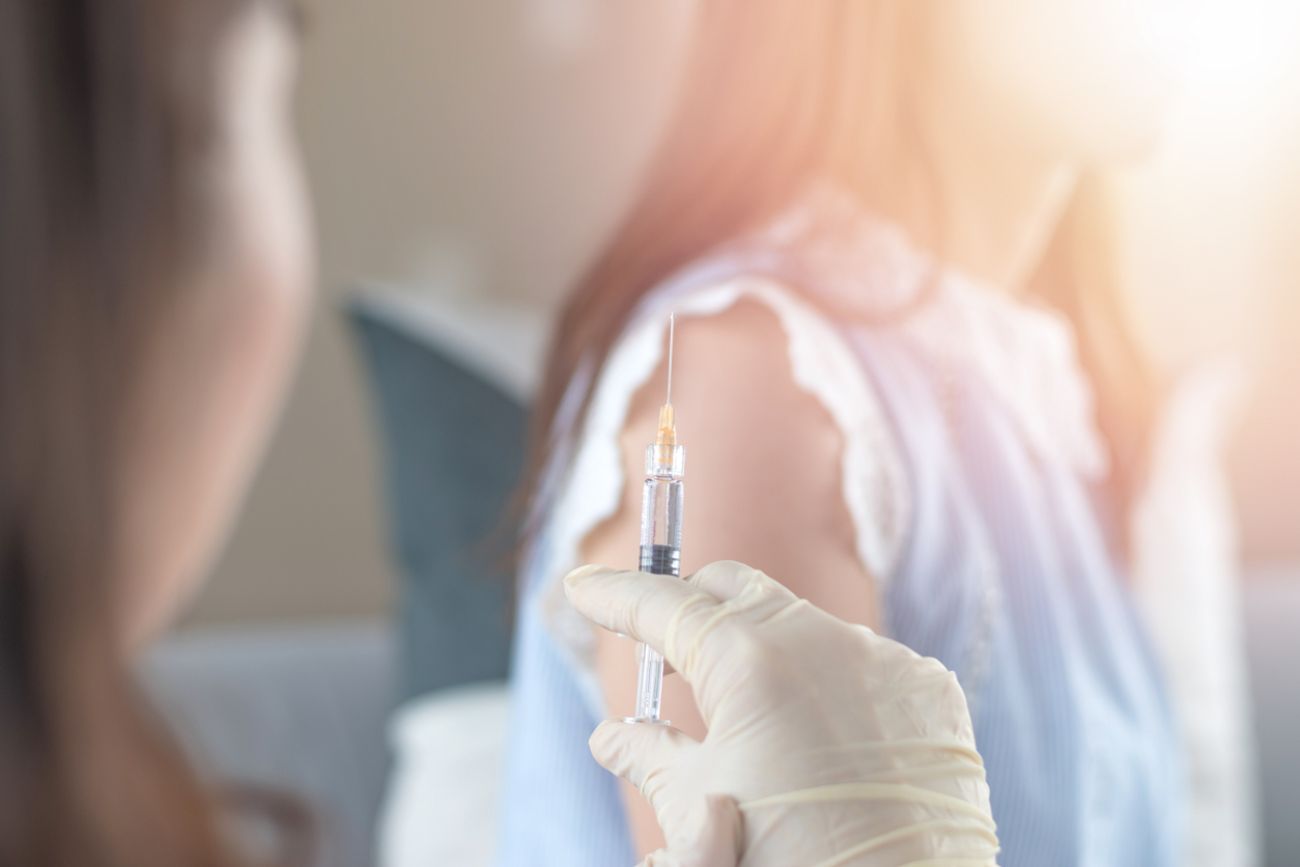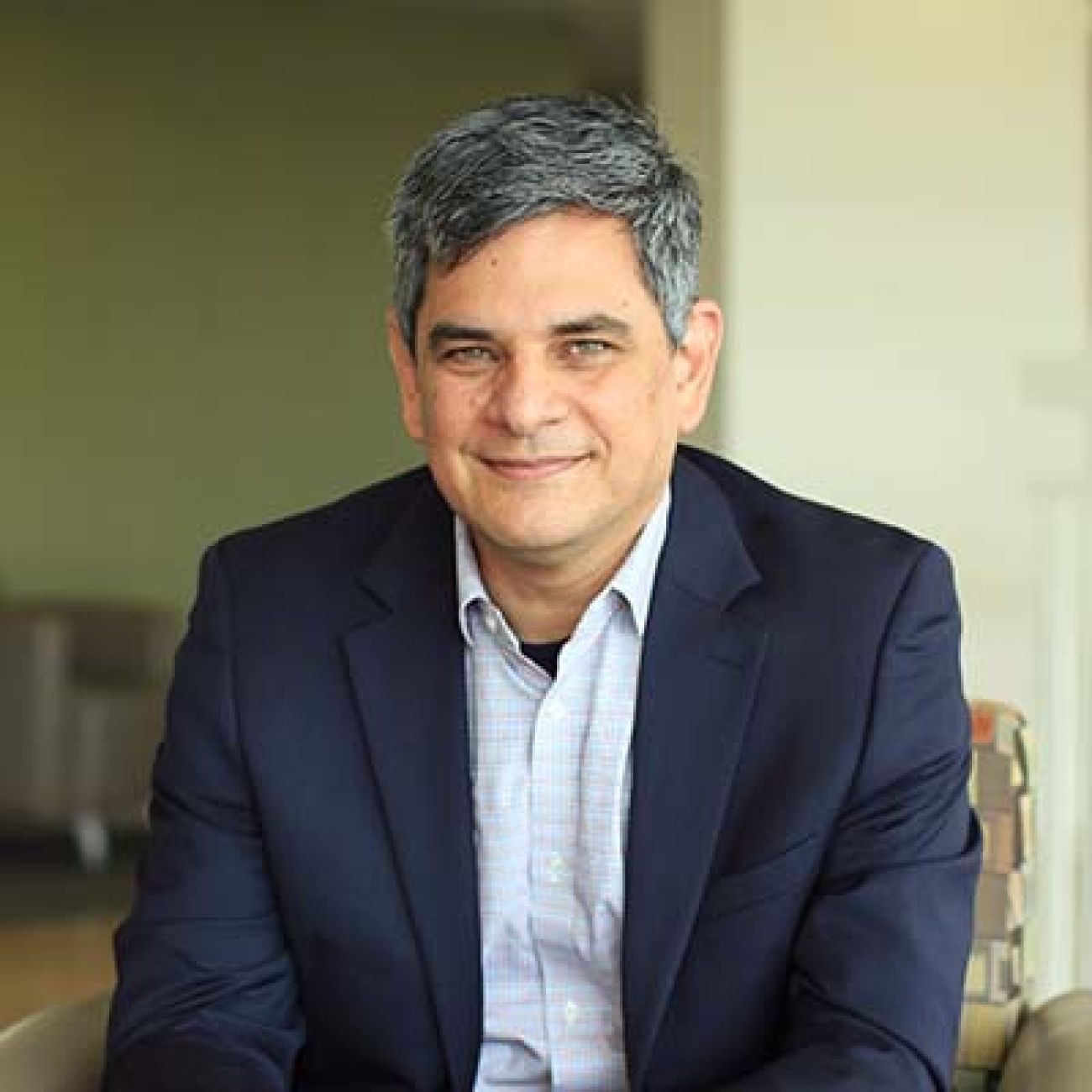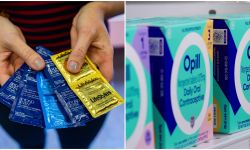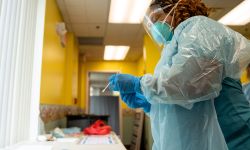There’s a vaccine to prevent cancer. Fewer than half of Michigan teens have it

- Fewer than half of Michigan adolescents are immunized against the cancer-causing human papillomavirus, reports show
- Medical experts say better patient-provider communication is key to improving vaccination rates
- A Detroit public health facility found frequent, destigmatized discussions led to more HPV immunizations
A vaccine to prevent cancer might seem like an easy sell to parents.
Yet in Michigan, fewer than half of Michigan’s adolescent population — just 44% — has gotten the vaccine against human papillomavirus (HPV), according to a Michigan Department of Health and Human Services report.
A new study may shed light on the disconnect. In some cases, it boils down to just two minutes.
“Even taking two minutes to talk about the vaccine adds up. Because if (providers) are going to see 20 patients, that is 40 minutes,” said Henry Ford Health researcher, Eric Boakye. “That is when people say, ‘Oh, we don't have time.’”
The result?
Many U.S. patients without the vaccine don’t even know it exists.
Doctors just aren’t recommending it enough, said Boakye, who has been trying to understand the nation's reluctance to roll up its collective sleeve for the life-saving vaccine.
And it's not just time. It's a touchy subject, too.
Related:
- HPV cancer rates are up. Yet many Michigan doctors won’t talk about it.
- COVID is up again in Michigan. Good luck finding more info (or free tests)
- Michigan marks 2 years of 988 crisis hotline, but awareness lags nationwide
- Blue Cross Blue Shield of Michigan won’t cover popular weight-loss drugs
Many health care providers don’t end up recommending it, he said, and informed parents still may choose not to have their child immunized.
HPV is the world’s most prevalent sexually transmitted infection. Nearly every unvaccinated person will contract it, U.S. Centers for Disease Control data indicates.
Many of those infected have no symptoms at all, but it is responsible for about 47,000 U.S. cancer cases annually, including 11,000 cases of cervical cancer and 15,000 cases of oral cancer.
Cervical cancer is the fourth-leading cause of cancer-related death among women, according to a 2022 report from the World Health Organization.
The HPV vaccine stops about 90% of all cancers related to the disease.
But there’s a catch — the immunization is significantly more effective when obtained before a patient becomes sexually active. For this reason, the CDC recommends the first of a two-dose vaccine be given to 11- and 12-year-old boys and girls.
The young age puts many healthcare providers in an uncomfortable position when discussing the vaccine, Boakye said. Some choose not to discuss it. Others don’t have the time.
The state’s health department has many ongoing initiatives to raise awareness for HPV prevention, including partnerships with dentists to discuss oral cancers linked to the disease.
But efforts have had little overall effect. Although the proportion of children fully vaccinated against HPV has improved by up to five percent since 2018 for Wayne and Oakland counties, statewide rates have remained the same.
Boakye’s new study with the Henry Ford Health System explains why: The majority of U.S. patients without the vaccine don’t even know it exists. Doctors just aren’t recommending it enough, Boakye said.
The study analyzed 20,162 patient immunization records from private facilities, like hospitals; and public facilities, like community health clinics prevalent in rural Michigan.
Data from the study showed that overall, about 81% of adolescent patients received recommendations from their doctor for the HPV vaccine. Among those that received a provider recommendation for the vaccine, 82% initiated the vaccine series if they received recommended vaccinations at private facilities and 77% initiated if they received recommended vaccinations at public facilities. Among those that did not receive a recommendation, only 32% (private facilities) and 51% (public facilities) initiated the vaccine series.
Why don’t some providers recommend the life-saving vaccine? Boakye said there are two main reasons: time constraints and the reluctance to discuss sexually transmitted infections with patients.
Providers — especially in public facilities — have to ration the time they spend consulting patients, Boakye said. In this setting, doctors focus on patients’ health in the present, not the future.
And providers seeing patients from a culture different from their own can lead to discomfort in bringing up the vaccine, Boakye said. Depending on their background, parents may be perceived as more likely to react negatively to discussing preventative care for a sexually transmitted infection.
Another study published by Boakye in March found that HPV vaccination rates were 27% lower for hispanic patients compared to white, non-hispanic patients. Detroit physician Dr. Felix Valbuena said this is because parents can interpret the vaccine to be a “license to have sex” for their child.

“Many Latino patients are Catholic,” Valbuena said. “It’s a touchy subject.”
Valbuena is CEO of the Community Health and Social Services (CHASS) Center, a public health facility that specializes in providing care to underserved African-American and Latino community members. The center keeps numerous policies in place to promote HPV immunization to fill patient care gaps.
Changing the script is one way Valbuena has increased patient immunizations. Instead of telling families what vaccines are required for their children to attend public school, they are now given informational sheets on all recommended vaccines, including HPV. This method contributed to higher influenza and COVID-19 immunization rates at CHASS since its implementation in 2012, he said.
In addition to the center-wide script change, Valbuena says he can often convince parents to get their kids immunized with one sentence:
“I have a son and daughter who both got the vaccine.”
The immunization efforts are part of the center’s effort to shift from reactive care to proactive care. Doctors understand discussing HPV is worth their time, and they recommend the vaccine at every contact point with families, including regular checkups and urgent care appointments.
Boakye’s new study reflects the importance that repeated recommendations may have: Only 29% of public facility patients without a recommendation completed their vaccine series. That amount doubled when patients received a recommendation.
“We’re in a culture where healthcare is always trying to put a Band-Aid on once someone has a major illness,” he said. “We’re trying to keep them from getting that illness.”
Structural systems within health facilities to keep track of vaccination rates and identify the unvaccinated were significantly associated with higher HPV vaccine uptake in midwestern clinics, a 2023 University of Michigan study found. And parental out-of-pocket cost was the greatest predictor of whether or not a patient would get the vaccine.
Michigan’s chief medical executive Dr. Natasha Bagdasarian said the state has partnerships and programs to ensure vaccine accessibility. Boakye added that more efforts are needed to spread awareness for programs that can help uninsured parents pay for the HPV vaccine, like Michigan Vaccines for Children.
While health facilities focus on reshaping their providers’ approaches to informing patients about HPV, Michigan health department officials are working to combat the stigma surrounding the disease.
For August’s Immunization Awareness Month, the department will be promoting vaccinations with paid ads running for back to school immunizations through the I Vaccinate campaign.
“Parents are squeamish when talking about sex when it comes to their child,” said Bagdasarian. “But the bottom line is that this vaccine prevents cancer.”
In a 2019 interview with Bridge, Matt Robinson of Chelsea, an HPV-related cancer survivor, agrees.
“You’ve got to get your kid vaccinated, and here’s why: cancer,” he said.
See what new members are saying about why they donated to Bridge Michigan:
- “In order for this information to be accurate and unbiased it must be underwritten by its readers, not by special interests.” - Larry S.
- “Not many other media sources report on the topics Bridge does.” - Susan B.
- “Your journalism is outstanding and rare these days.” - Mark S.
If you want to ensure the future of nonpartisan, nonprofit Michigan journalism, please become a member today. You, too, will be asked why you donated and maybe we'll feature your quote next time!





